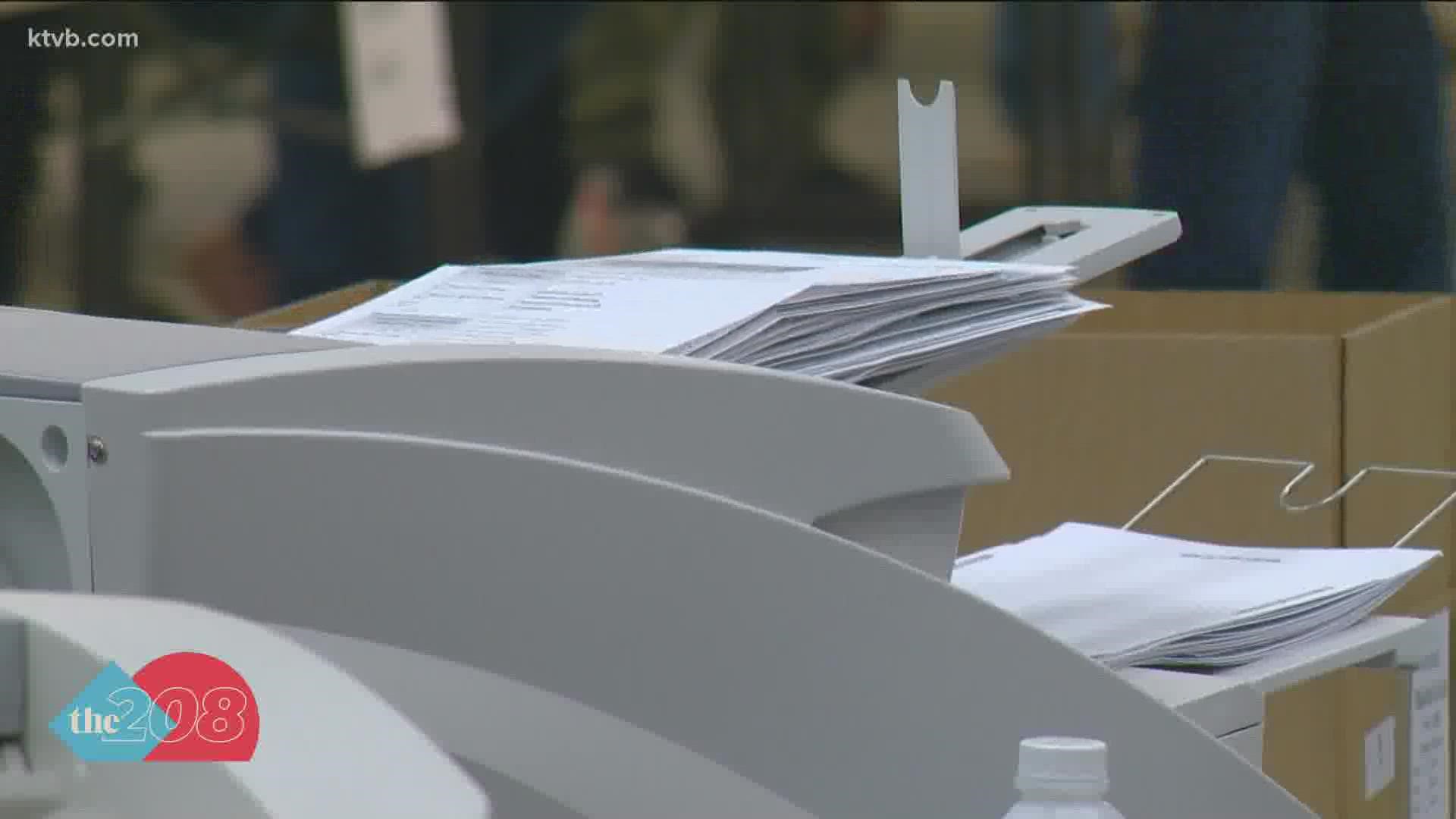BOISE, Idaho — An Idaho law will soon save everyone time and taxpayer dollars during the upcoming November 2 election.
“It allows the county clerks to not put a race on the ballot if it is an uncontested race, for example, for mayor or city council,” said Chad Houck, Chief Deputy Secretary of State
Houck explains the law only covers elections up to the city level -- not countywide, statewide or legislative races.
Houck says there are two main benefits that come with the law tailored to avoid unnecessary elections in cases when someone isn't running against anybody else.
“It reduces the cost; it reduces the time needed to administer the election. If you are in a hand-count county, it’s one less tabulation process to have in getting those numbers in. Ultimately, it reduces the cost of administering that election for the county clerks,” Houck said.
Houck points out, for example, that fewer ballot items means lower costs for ballot printing. Fewer ballot items can also promote better voter engagement.
“Fewer things that are on the ballot -- we know there is such a real thing as ballot fatigue. The further you go down the ballot, the less likely a voter is to participate in those ballot questions that are towards the tail end of the ballot,” Houck said.
You may be wondering, what about write-in candidates? Does this effectively eliminate that option? The short answer is no, and it is important to mention that write-in candidates in Idaho do need to go through a registration process ahead of an election to have votes counted for them.
Houck says the law addresses all of that.
“It actually very specifically addressed write-in candidates. In fact, the bill states that after the passing of the deadline for registering as a write-in candidate, registering as a write-in candidate is a statutory requirement. It happens after the declaration of candidacy but before the deadlines where the ballots are actually printed and go out the door. That’s so only registered write-in candidates that have had an opportunity for the county clerks to evaluate their ability to serve in that office, meeting the qualifications of that office, are allowed to receive votes functionally on Election Day, should they win that contest,” Houck said.
The concept the law accomplishes applied to lower-level elections previously, but again, it will now extend to city elections, but not beyond that.
“This does not apply anywhere above that city threshold, it doesn’t get up into any of our partisan elections. We still utilize in a partisan office, like a legislature or like our constitutional offices, if one should be uncontested, you would still see that there. That’s more of a keeping track of the primary and general system we don’t have in the municipal or city elections,” Houck said.
Watch more Idaho politics:
See all of our latest political coverage in our YouTube playlist:

